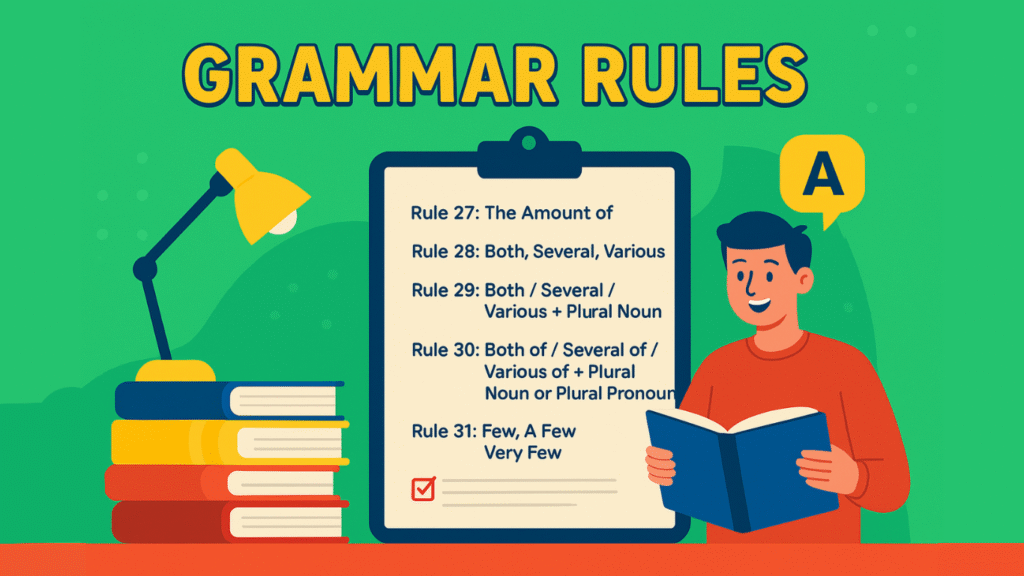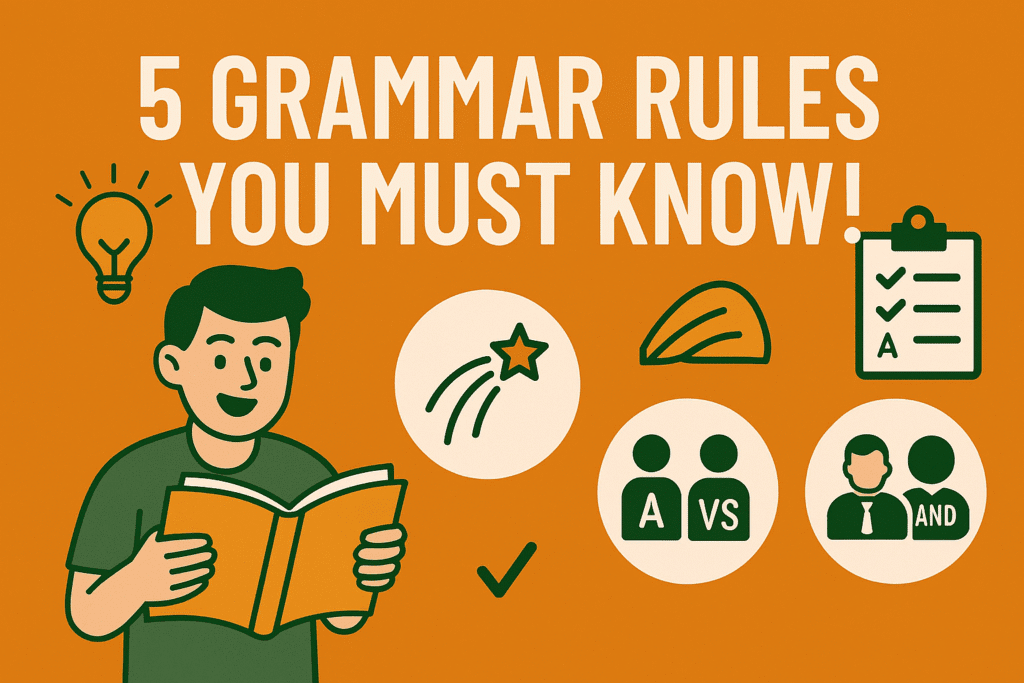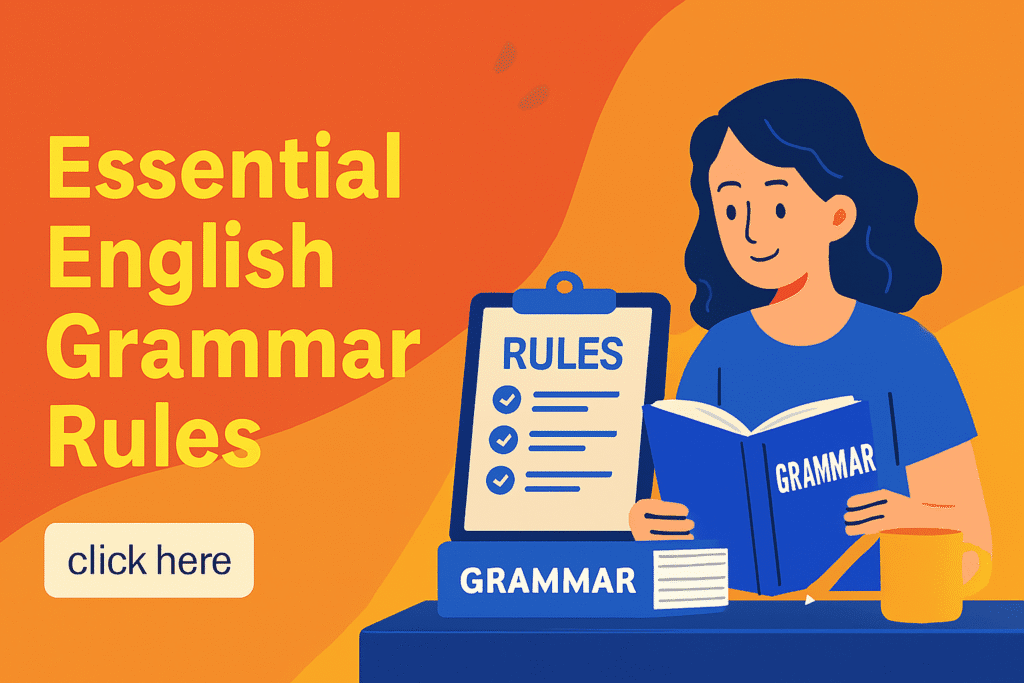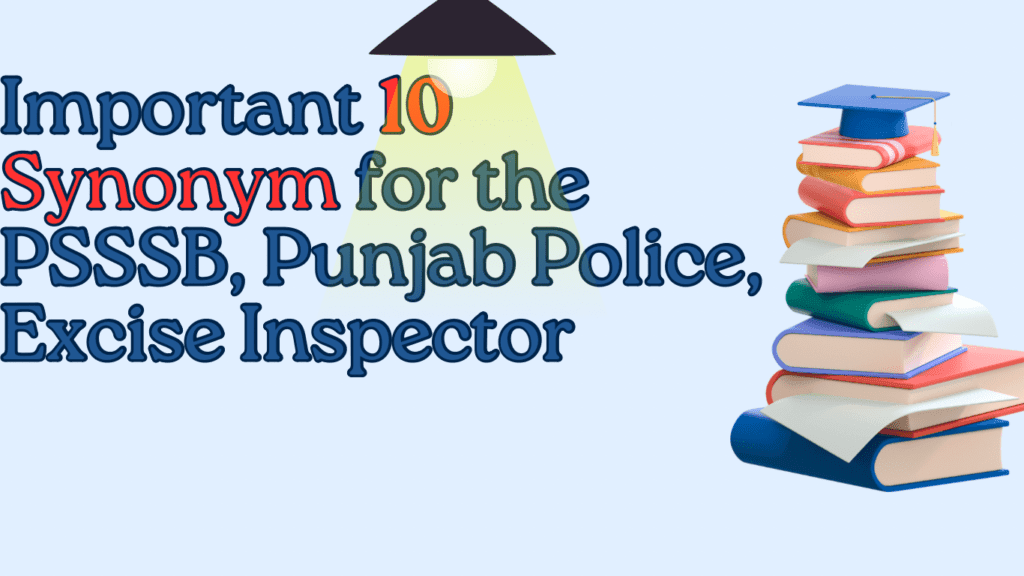
English grammar is an essential component of Punjab state-level competitive exams such as PSSSB, PCS, Punjab Police, Punjab Patwari, Excise Inspector, Senior Assistant, Labour Inspector, and others. With the English section carrying a weightage of 10-15% in most exams, mastering grammar rules is crucial for securing a top rank and achieving your dream job.
A strong command of grammar not only helps you score well but also enhances your overall communication skills, which are valuable in professional life. Many aspirants lose marks due to minor grammatical mistakes, even when they know the correct answer. That’s why understanding key grammar rules, practicing consistently, and avoiding common errors can give you a significant advantage.
This article is part of a comprehensive series designed to simplify English grammar for competitive exams. If you haven’t read the first part of this series, click here to start from the beginning. To review the previous part, click here.
Now, let’s dive into the next five grammar rules to strengthen your preparation and boost your confidence!
Table of Contents

Rule 27: The Amount of / A Large Amount of / A Great Deal of / A Good Deal of (Important Grammar Rules)
When these phrases are used with a singular uncountable noun as the subject, they take a singular verb.
Examples:
- The amount of water is sufficient. (Correct)
The amount of water are sufficient. (Incorrect) - A large amount of sugar was wasted. (Correct)
- A great deal of effort is required to complete this task. (Correct)
- A good deal of time has been spent on this project. (Correct)
- The amount of pollution is increasing day by day. (Correct)
These structures are commonly used in academic writing and formal conversations, so mastering them will enhance both your exam performance and overall English proficiency.
Rule 28: Both, Several, Various
When “Both,” “Several,” or “Various” are used as the subject, they always take a plural verb.
Examples:
- Both are talented. (Correct)
Both is talented. (Incorrect) - Several have already submitted their applications. (Correct)
- Various were invited to the event. (Correct)
- Both of the candidates are qualified. (Correct)
- Several of the students were absent yesterday. (Correct)
These words indicate more than one, which is why a plural verb must follow them.
Rule 29: Both / Several / Various + Plural Noun
When these words are followed by a plural noun as the subject, they take a plural verb.
Examples:
- Both girls are intelligent. (Correct)
- Several officers were promoted. (Correct)
- Various farmers have attended the workshop. (Correct)
- Both teams are competing for the trophy. (Correct)
- Several books are missing from the library. (Correct)
This structure is widely used in everyday English and formal writing. Make sure to apply it correctly in your exam answers and essays.
Rule 30: Both of / Several of / Various of + Plural Noun or Plural Pronoun
When these phrases are used with a plural noun or pronoun as the subject, they take a plural verb.
Examples:
- Both of the girls are intelligent. (Correct)
- Several of them were late to the meeting. (Correct)
- Various of the participants have left the venue. (Correct)
- Both of the projects are completed. (Correct)
- Several of the employees are on leave today. (Correct)
This rule is particularly useful when describing groups, making it a key aspect of spoken and written English.
Rule 31: Few, A Few, Very Few
When “Few,” “A Few,” or “Very Few” are used with a plural noun or pronoun as the subject, they take a plural verb.
Examples:
- Few students are present in the class. (Correct)
Few students is present in the class. (Incorrect) - A few books were donated to the library. (Correct)
- Very few people have completed the task. (Correct)
- Few of the candidates are well-prepared. (Correct)
- A few of the apples are rotten. (Correct)
Note:
- Few implies a negative meaning (“not many” or “almost none”).
Example: Few people attended the event. (Negative) - A Few implies a positive meaning (“some” or “a small number”).
Example: A few people attended the event. (Positive) - The Few means “all of the small number” and can be positive or negative.
Example: I have read the few books I had. (Positive/Negative)
This distinction is often tested in competitive exams, so understanding these subtle differences will help you avoid mistakes.
Mastering these grammar rules is essential for excelling in Punjab state-level competitive exams. English grammar not only helps you score well in exams but also improves your communication skills for daily life. Practice these rules regularly, create your own examples, and share them in the comments below for feedback.
Don’t forget to share this post with your friends and fellow aspirants to help them in their preparation. Your success is our priority! Leave a comment to let us know how this article helped you, and feel free to ask any questions. Best of luck for your exams!
FAQs
1. Why is English grammar important for Punjab state-level exams?
English grammar carries a weightage of 10-15% in most Punjab state-level exams. A strong command of grammar can significantly improve your overall score and rank.
2. What is the correct usage of “The amount of”?
“The amount of” is used with singular uncountable nouns and takes a singular verb.
Example: The amount of money is sufficient.
3. How do “Both,” “Several,” and “Various” affect the verb in a sentence?
These words always take a plural verb when used as the subject.
Example: Both girls are intelligent.
4. What is the difference between “Few” and “A Few”?
“Few” implies a negative meaning (“not many”).
“A Few” implies a positive meaning (“some”).
5. How can I practice these grammar rules effectively?
Create your own sentences using these rules and share them in the comments for feedback. Regular practice is key to mastering grammar.
6. Can “The Few” be used in both positive and negative contexts?
Yes, “The Few” can be used to mean “all of the small number” and can carry either a positive or negative meaning depending on the context.
Example: I have read the few books I had. (Positive/Negative)


















